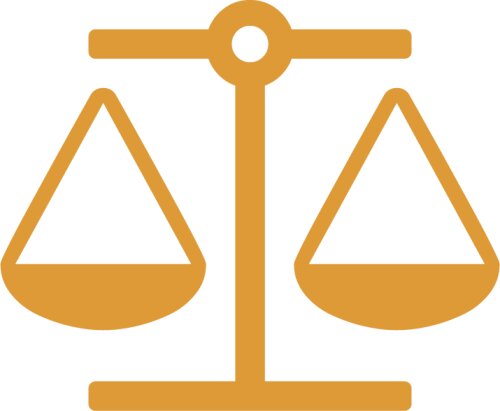Best Administrative Lawyers in Kinshasa
Share your needs with us, get contacted by law firms.
Free. Takes 2 min.
List of the best lawyers in Kinshasa, DR Congo
About Administrative Law in Kinshasa, DR Congo
Administrative law in Kinshasa, as in the rest of the Democratic Republic of Congo, governs the organization, powers, and duties of administrative authorities. This branch of law ensures that government actions are lawful and that citizens have clear pathways to challenge decisions that affect them. Given the evolving administrative structure in a rapidly developing urban area like Kinshasa, understanding this legal domain is essential for navigating government interactions.
Why You May Need a Lawyer
People in Kinshasa may require a lawyer specializing in administrative law for various reasons. Common situations include disputes over government regulations, licensing and permits, administrative decisions affecting businesses or property ownership, and challenges to the actions of public bodies. Legal expertise is invaluable in these instances to ensure proper representation and interpretation of complex laws.
Local Laws Overview
Kinshasa is subject to the legal framework of the Democratic Republic of Congo, featuring a blend of Congolese legal traditions and influences from Belgian law due to its colonial history. Key aspects relevant to administrative law include the Organization of the Government Act, which outlines government structure, as well as procedures and capabilities for challenging administrative actions. The law emphasizes transparency, fairness, and accountability in government dealings.
Frequently Asked Questions
What is the role of administrative law in Kinshasa?
Administrative law oversees the functions of government agencies, ensuring lawful decision-making and providing remedies for aggrieved citizens or entities.
How can I challenge a government decision in Kinshasa?
Citizens can challenge government decisions by filing a complaint in the administrative courts. It is advisable to consult a lawyer to understand the specific procedures and grounds for appeal.
Do I need a lawyer to apply for permits or licenses?
While not mandatory, having a lawyer can help navigate complex application processes, ensuring compliance with all legal requirements and increasing the likelihood of success.
What are common issues faced by businesses in administrative law?
Businesses often face issues related to zoning, environmental regulations, taxation, and changes in administrative rulings impacting operations.
How are disputes with government agencies typically resolved?
Disputes with government agencies can be resolved through negotiation, mediation, or, if necessary, litigation in administrative courts.
Can administrative decisions be appealed?
Yes, administrative decisions can be appealed if there are grounds such as procedural errors or violations of laws or regulations. Legal advice is crucial to assess and prepare an appeal.
What is the statute of limitations for filing an administrative lawsuit?
The statute of limitations can vary depending on the type of administrative action being challenged. Consulting with a lawyer will help determine specific time frames applicable to your case.
Are there any recent changes in administrative laws in Kinshasa?
Changes in administrative laws occur periodically, reflecting shifts in government policies and priorities. Legal professionals can provide the latest updates pertinent to your specific issue.
What should I bring when meeting with an administrative lawyer?
Bring all relevant documents, correspondence, decisions or rulings from government bodies, and any prior legal advice you've received. Detailed information will help the lawyer assess your case effectively.
How expensive is it to hire an administrative lawyer in Kinshasa?
Legal fees vary based on the complexity of the case and the lawyer's experience. Initial consultations may offer insights into potential costs, allowing for informed decision-making.
Additional Resources
For those seeking additional information, the Ministry of Justice and Human Rights in the Democratic Republic of Congo offers guidance on administrative matters. The Kinshasa Bar Association can also provide referrals to qualified administrative lawyers. Moreover, NGOs focused on rights advocacy often offer resources and assistance in navigating administrative processes.
Next Steps
If you require legal assistance in administrative matters, begin by consulting with a reputable lawyer in Kinshasa who specializes in this field. Collect all related documentation and clarify your objectives. Utilize professional networks or directories, possibly starting with the Kinshasa Bar Association, to find a suitable legal expert. This approach will help ensure that your case is handled with the appropriate legal expertise needed for success.
Lawzana helps you find the best lawyers and law firms in Kinshasa through a curated and pre-screened list of qualified legal professionals. Our platform offers rankings and detailed profiles of attorneys and law firms, allowing you to compare based on practice areas, including Administrative, experience, and client feedback.
Each profile includes a description of the firm's areas of practice, client reviews, team members and partners, year of establishment, spoken languages, office locations, contact information, social media presence, and any published articles or resources. Most firms on our platform speak English and are experienced in both local and international legal matters.
Get a quote from top-rated law firms in Kinshasa, DR Congo — quickly, securely, and without unnecessary hassle.
Disclaimer:
The information provided on this page is for general informational purposes only and does not constitute legal advice. While we strive to ensure the accuracy and relevance of the content, legal information may change over time, and interpretations of the law can vary. You should always consult with a qualified legal professional for advice specific to your situation.
We disclaim all liability for actions taken or not taken based on the content of this page. If you believe any information is incorrect or outdated, please contact us, and we will review and update it where appropriate.














